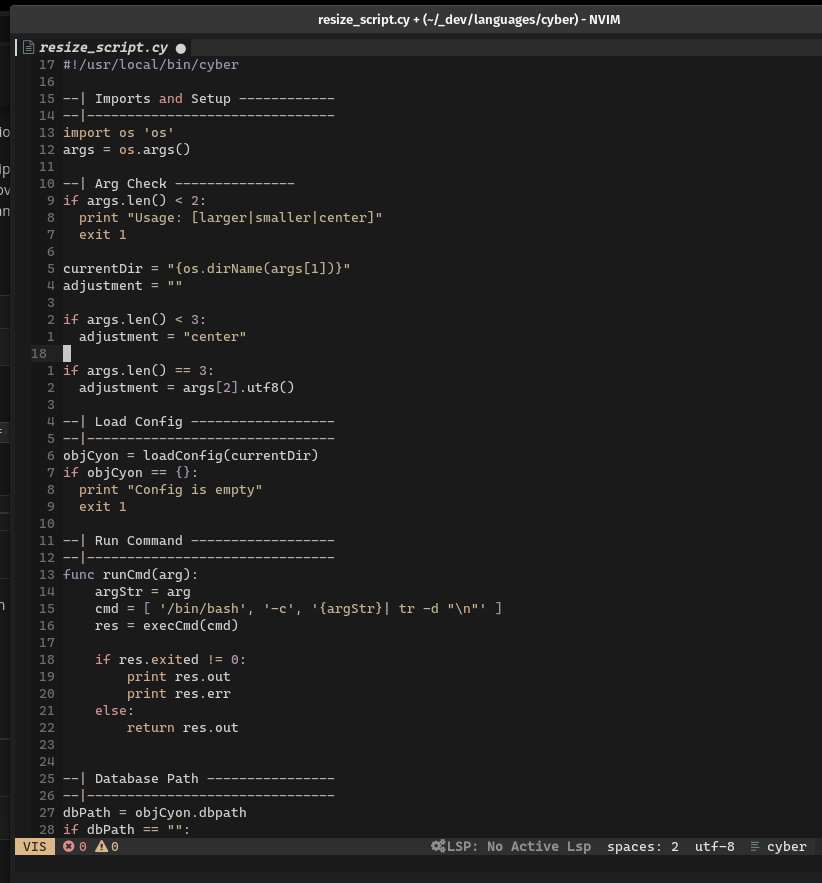Sorry, of course I figured it out seconds after posting this.
It looks like the proper way to do this is:
func runArgs(arg):
argStr = arg.utf8() -- Change the arg to utf8() from the start
cmd = [ '/bin/bash', '-c', 'echo "{argStr}"' ]
res = execCmd(cmd)
-- ...
print res.out -- Gives hello




Hey there. I am attempting to print the output of return value from execCmd() (value.out), but it keeps giving 'rawstring(n)'. I tried using value.out.utf8() and various other things, but none of them seem to give what I expected as the result. Is the 'out' parameter from the result object of the execCmd call not what I am thinking it should be?
I feel that I must be missing something, or not properly understanding something?
Thanks, -MH